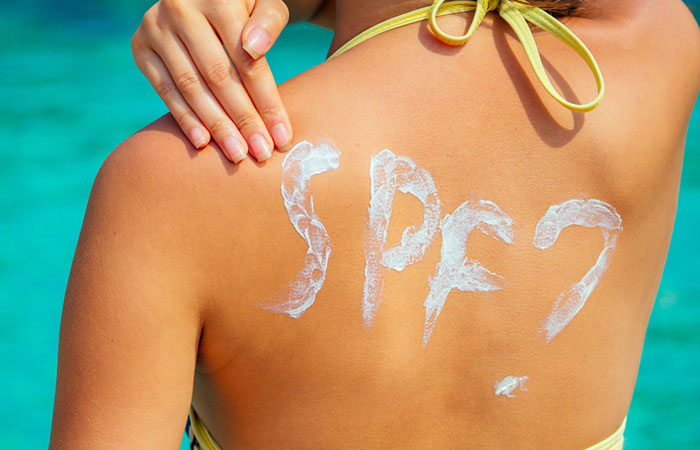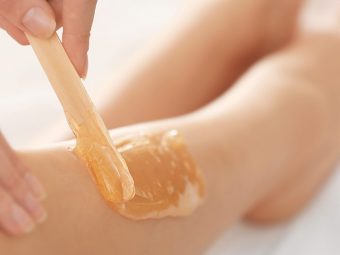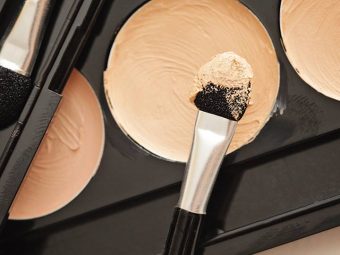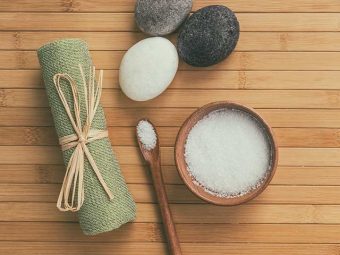How To Use Coconut Oil For Tanning
Get that sunkissed glow with the nourishment and goodness of this versatile oil.
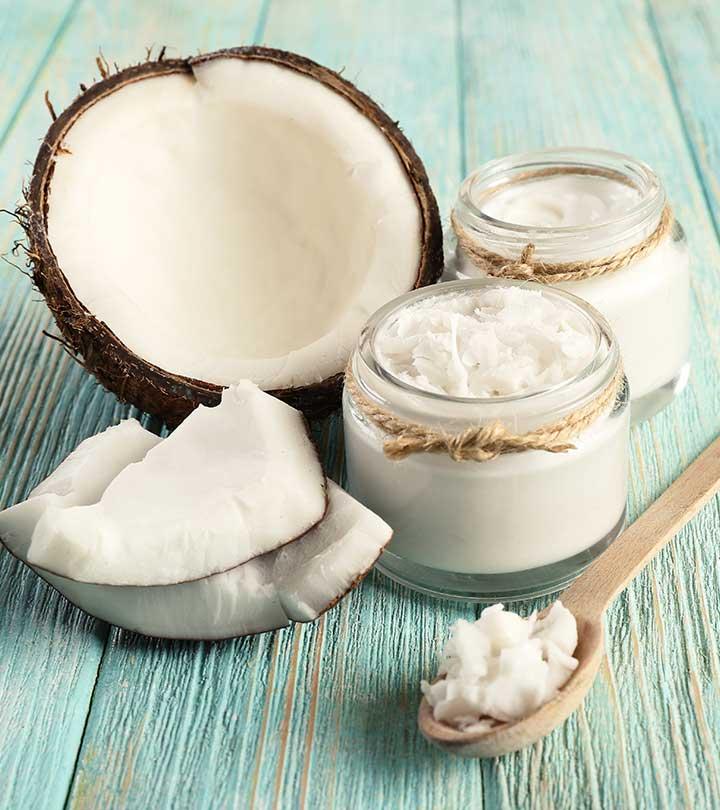
If you are someone who wishes to have a body that looks like you just returned from a summer holiday at the beach, then this article is for you. Anyone who wants to have a tanned body without artificial tanners can use coconut oil for tanning.
Coconut oil helps you get a perfect tan and maintains your skin’s hydration levels during sunbathing. So, how do you use it for tanning? Is it safe to use coconut oil for tanning? How does it work? This article discusses everything you need to know about tanning with coconut oil. Keep reading to learn more.
In This Article
Does Coconut Oil Help You Tan?
Tanning with oils helps attract and focus the UV rays on the skin. It may also help increase the rate of tanning. While coconut oil does not provide sufficient SPF protection, it can certainly be used as an alternative to synthetic tanning lotions and oils. The composition and ingredients in coconut oil as sunscreen can benefit your skin in countless ways. Here’s precisely how it helps you tan efficiently:
1. Coconut Oil Speeds Up The Absorption Of Vitamin D
Vitamin D is essential for both your body and skin. While coconut oil blocks UV rays by 75%, thanks to its SPF of 4, it also allows your skin to absorb the goodness of vitamin D rapidly.
2. Coconut Oil Nourishes And Protects Your Skin
During a tanning session, your skin is exposed to strong sunlight and harmful UV rays. Coconut oil helps cut down skin damage with the help of the stable saturated fats in it that form a protective layer on your skin (1). These saturated fats and vitamins also help reduce the loss of moisture from your skin. Additionally, coconut oil helps replenish the natural shine of your skin.
3. Coconut Oil Has Antibacterial And Antifungal Properties
Since your skin remains exposed to the sun for hours while tanning, it is an open invitation for microbes, bacteria, and fungus of all types that may cause infections. Coconut oil contains medium-chain triglycerides (MCTs), capric acid, myristic acid, and lauric acid that lend it antifungal and antimicrobial properties and guard your skin against infections (2).
4. Coconut Oil Reduces Skin Inflammation
In case of possible inflammation resulting from the scorching sun, dust, or other environmental factors, coconut oil soothes your skin and helps prevent flare-ups. Its anti-inflammatory properties also prevent your skin from peeling or cracking.
Lastly, coconut oil is free of all the harmful chemicals and irritants that make the use of artificial products less preferable.
Using coconut oil for a natural sun-kissed glow is simple. For best results, use virgin coconut oil as it offers more benefits than refined coconut oil.
Check out the step-by-step guide on how to use coconut oil for tanning in the next section.
How To Use Coconut Oil For Tanning – Step-By-Step Tutorial
Shutterstock
Step 1: Massage some coconut oil all over your body. Make sure you cover every bit of exposed skin to moisturize and tan evenly. If you are heading to the beach or the pool, you can take it with you in a pump bottle.
Step 2: Remember to wear your sunglasses and hat. Your eyes and the skin around it are extremely delicate and sensitive to UV rays. Also, avoid falling asleep outdoors with your sunglasses as it can create some unsightly tan lines on your face.
Step 3: Go bask in the sun. However, do not stay in direct sunlight for longer than 20 minutes at a time. The effects can vary from person to person, depending on your skin type. Stick to 15-20 minutes a day to get a bronze tan and soak up adequate amounts of vitamin D.
[Read: Safflower Oil For Skin]
The Dangers of UV Exposure
Shutterstock
Spending a lot of time in the sun, especially without sun protection, can not only damage your skin but can also cause premature aging and lead to skin cancer. Coconut oil as tanning oil works best for women.
So, the question is, is there such a thing as a safe suntan?
The answer is, yes. Although it does not come without risks, the best way to get a healthy tan is to not overexpose your skin to UV rays. It is advisable to tan gradually by dividing your time under the sun evenly to reduce sunburn.
Tan in small doses and choose wisely what time you decide to go for a suntan. The United States Environmental Protection Agency (EPA) says UV strength is greatest from 10 a.m. to 4 p.m. during sunny summer days (3).
Despite the fact that coconut oil is beneficial for your skin in many ways, it is not a good idea for everyone to use it for tanning. Depending on your skin type and the way your skin reacts to the sun, coconut oil may have different effects on different people. For instance, if your skin is on the oilier side, coconut oil is a risky deal for you as it may result in acne breakouts.
People looking to get tanned without using artificial tanners can use coconut oil for tanning. Studies suggest that using coconut oil may quickly absorb vitamin D from the sun and protect the skin from inflammation. Its high vitamin and healthy fat content makes it suitable for hydrating dry skin and protecting the skin from skin infections. You can apply some coconut oil over your body and sit under the sun for 20 minutes to get a natural tan. Be careful not to sit under the sun for too long as coconut oil does not offer enough protection against UV rays.
Frequently Asked Questions
Is coconut oil a natural sunscreen?
No. Natural oils like coconut oil cannot be used as standalone sunscreen. It does not offer the SPF needed to keep your skin safe from UV rays. Coconut oil for tan removal is a safe way for Skin.
Sources
- In vitro anti-inflammatory and skin protective properties of Virgin coconut oil, Journal of Traditional and Complementary Medicine, US National Library of Medicine, National Institutes of Health.
https://www.ncbi.nlm.nih.gov/pmc/articles/PMC6335493/ - Anti-Inflammatory and Skin Barrier Repair Effects of Topical Application of Some Plant Oils, International Journal of Molecular Sciences, US National Library of Medicine, National Institutes of Health.
https://www.ncbi.nlm.nih.gov/pmc/articles/PMC5796020/ - Sun Screen: The Burning Facts, Air and Radiation, United States Environmental Protection Agency.
https://www.epa.gov/sites/production/files/documents/sunscreen.pdf
Recommended Articles:




